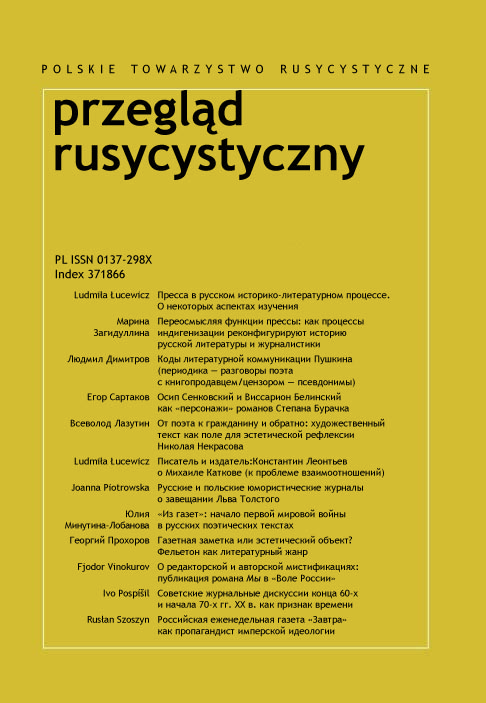Cходства и различия в значении и употреблении глаголов дать — dát, даться — dát se в русском и чешском языках
The cases of coincidence and difference in the meaning and use of the verbs дать — dát, даться — dát se in Russian and Czech
Author(s): Stanislav ŽažaSubject(s): Language and Literature Studies
Published by: Polskie Towarzystwo Rusycytyczne
Summary/Abstract: The use of the Russian verb дать and its Czech analogue dát is full identical only in the proper meaning of both verbs, i.e. if they are connected with a dative object designating a person. The Russian verb дать used in broad meaning and connected with a deverbative noun turns into component of an analytical semantic unit which is represented by sole full-value verb in Czech. Such expressions are symptoms of the tendency to analytism in Russian in the same way as similar constructions with some other verbs of broad meaning and nominal phrases. On the other hand, the Czech verb dát commonly occurs in connection with an adverbial phrase while in Russian verbs of more concrete meaning are used in such cases. Such constructions correspond to similar expressions in German There are various differences in the use of the reflexive variants dát se — даться.
Journal: Przegląd Rusycystyczny
- Issue Year: 2006
- Issue No: 115
- Page Range: 125-131
- Page Count: 7
- Language: Russian

